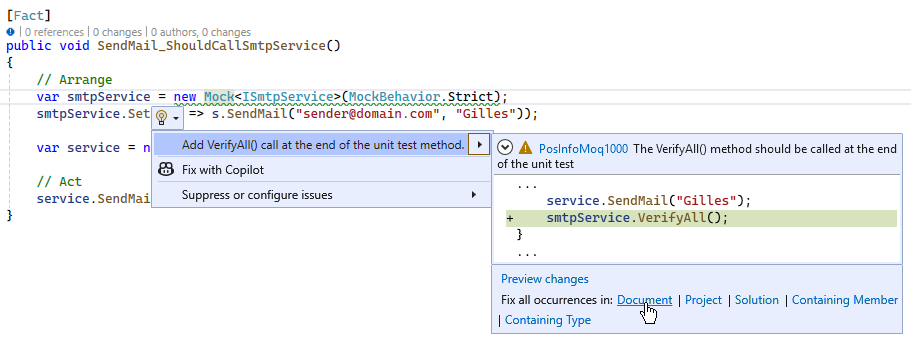PosInformatique.Moq.Analyzers
PosInfoMoq1000: ``VerifyAll() method should be called when instantiate a Mock` instances
| Property | Value |
|---|---|
| Rule ID | PosInfoMoq1000 |
| Title | VerifyAll() methods should be called when instantiate a Mock |
| Category | Design |
| Default severity | Warning |
Cause
A VerifyAll() of an Mock<T> instance has not been called in the Assert phase
of an unit test.
Rule description
When instantiating a Mock<T> in the Arrange phase of an unit test, VerifyAll() method
should be called in the Assert phase to check the setup methods has been called.
[Fact]
public void SendMail_ShouldCallSmtpService()
{
// Arrange
var smtpService = new Mock<ISmtpService>();
smtpService.Setup(s => s.SendMail("sender@domain.com", "Gilles"));
var service = new CustomerService(smtpService.Object);
// Act
service.SendMail("Gilles");
// Assert
smtpService.VerifyAll(); // The VerifyAll() will check that the mocked ISmtpService.SendMail() has been called.
}
How to fix violations
To fix a violation of this rule, call the VerifyAll() in the Assert phase
on the Mock<T> instances created during the Arrange phase.
Visual Studio fixer
A Visual Studio fixer exists to add the call to the VerifyAll() method at the end of the unit test in the current document, project or solution.

When to suppress warnings
Do not suppress a warning from this rule. Normally all setup methods must be call.